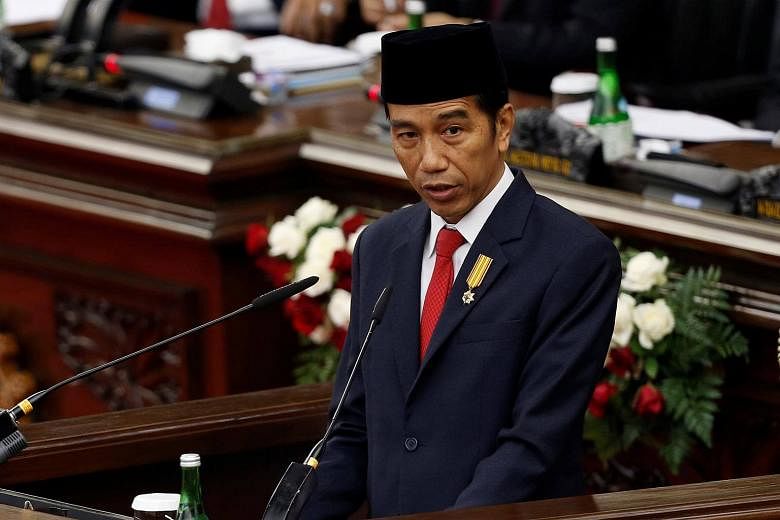JAKARTA (BLOOMBERG) - Rich Indonesians are starting to embrace a tax amnesty program that President Joko Widodo sees as a key revenue source for his spending plans, though inflows are still far from the government's initial target.
After a slow start, the number of people and institutions signing up for the amnesty more than doubled from last week to 299,087 as the first deadline carrying the lowest penalty rate approached on Friday (Sept 30.
The value of assets declared surged to 3,196 trillion rupiah (S$336 billion) from 97 trillion rupiah at the end of August, according to a tally on the Finance Ministry's website at 8 am local time.
What began as a trickle has turned into a flood as rich Indonesians, from businessmen to the son of the former dictator Suharto, lined up to participate in the programme. Yet, inflows are still far below the government's initial targets and results from the first stage show taxpayers have little appetite to bring their assets home.
"Do we expect this pace to continue for the next half a year, meaning the fourth quarter, and the first quarter next year? That's unlikely," said Wellian Wiranto, an economist at Oversea-Chinese Banking Corp. in Singapore. "The bulk of the amnesty filing will be indeed this month."
The government earned 93.5 trillion rupiah in revenue so far from the amnesty, about 57 per cent of its initial goal of 165 trillion rupiah - though that target no longer appears on the dashboard on the Finance Ministry's website.
"It seemed incredibly ambitious at the time and it's been shown out that this is not going to raise anywhere near the amount of money that they hoped it would," said Gareth Leather, senior Asia economist at Capital Economics in London.
Widodo, also known as Jokowi, has been banking on the amnesty to help finance billions of dollars in infrastructure projects as Southeast Asia's biggest economy struggles in the face of weak commodity prices and sluggish consumer demand. Finance Minister Sri Mulyani Indrawati said on Sept 27 the economy will probably grow about 5 per cent this year, compared with last year's expansion of 4.8 per cent, the slowest pace since 2009.
"About the target, we shall wait until March," she said. "We will keep trying to maximize the campaign and continue to invite the people to participate.
Some of Indonesia's wealthiest people have signed on for the amnesty, including the owner of the Inter-Milan and DC United soccer clubs, Eric Thohir, and Tommy Suharto, the son of former president Suharto.
About two-thirds of the funds declared come from onshore sources, according to data from the tax office. The bulk of the 1,019 trillion rupiah in assets held abroad looks set to remain overseas in places like Singapore, the Cayman Islands, Hong Kong, the Virgin Islands and Australia, with only about 12 per cent of that amount being repatriated.
Penalty rates applied under the amnesty, which kicked off mid-July, will climb from 2 per cent to 4 per cent in the first phase to between 3 per cent and 6 per cent over the second stage that ends in December. The rates then climb as high as 10 per cent in the final three-month period which ends in March.
"If you're a rich Indonesian businessman with money abroad, it's a bit like a turkey voting for Christmas in a way," said Capital Economics's Leather. "If they can get away with it, why would they voluntarily hand their money over if they've managed to get away with hiding it offshore for so long?"

